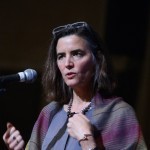 |
Pamela SmithSeth Low Professor of History, Columbia University; Founding DirectorPamela H. Smith is Seth Low Professor of History at Columbia University and Founding Director of the Columbia Center for Science and Society. At Columbia, she teaches history of early modern Europe and the history of science. She is the author of The Business of Alchemy: Science and Culture in the Holy Roman Empire (Princeton 1994; 1995 Pfizer Prize), and The Body of the Artisan: Art and Experience in the Scientific Revolution (Chicago 2004; 2005 Leo Gershoy Prize). Her work on alchemy, artisans, and the making of vernacular and scientific knowledge has been supported by fellowships at the Wissenschafts-Kolleg, as a Guggenheim Fellow, a Getty Scholar, a Samuel Kress Fellow at the Center for the Advanced Study of the Visual Arts in Washington, DC, and by the National Endowment for the Humanities, the Andrew Mellon Foundation, and the National Science Foundation. |
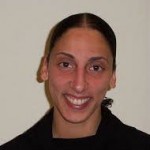 |
Marwa ElshakryAssociate Professor in the Department of History, Columbia UniversityMarwa Elshakry, Associate Professor, teaches on a broad range of subjects in the history of science, technology, and medicine and modern Arabic intellectual history. Her first book, entitled, Reading Darwin in Arabic was published in 2013 with the University of Chicago Press. Among her other publications are: “Translation” in Blackwell Companion to the History of Science (Wiley Press, 2016); “Islam” in Michael Saler, ed., The Fin-de-Siècle World (Routledge, 2014; Elshakry and Sujit Sivasundaram, eds., Science, Race and Imperialism [Victorian Literature and Science series: vol. 6], (Pickering and Chatto, 2012); and ‘When Science became Western: historiographical reflections’, Isis, 101:1 (March 2010), 98-109. She is currently working on the idea of golden ages, universal histories and the history of science and orientalism from the eighteenth to twentieth centuries. |
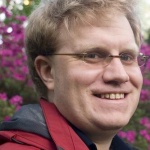 |
Matthew JonesJames R. Barker Professor of Contemporary Civilization, Columbia UniversityMatthew L. Jones specializes in the history of science and technology, focused on early modern Europe and on recent information technologies. He was a Guggenheim Fellow in 2012-13 and a Mellon New Directions fellow in 2012-15. He is finishing two books, Great Exploitations: Data Mining, Legal Modernization, and the NSA and Data Mining: The Critique of Artificial Reason, 1963-2005, a study of “big data” and its growth as a new form of technical expertise in business and scientific research. Reckoning with Matter: Calculating Machines, Innovation, and Thinking about Thinking from Pascal to Babbage is appearing this fall from the University of Chicago Press. His first book The Good Life in the Scientific Revolution (University of Chicago Press, 2006) focused on the mathematical innovations of Descartes, Pascal, and Leibniz. |
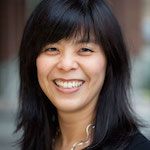 |
Eugenia LeanAssociate Professor in the Departments of History and East Asian Languages and Cultures, Columbia UniversityEugenia Lean received her BA from Stanford University (1990), and her MA (1996) and PhD (2001) from UCLA. She is interested in a broad range of topics in late imperial and modern Chinese history with a particular focus on the history of science and industry, mass media, consumer culture, emotions and gender, as well as law and urban society. She is also interested in issues of historiography and critical theory in the study of East Asia. She is the author of Public Passions: the Trial of Shi Jianqiao and the Rise of Popular Sympathy in Republican China (UC Press, 2007), which was awarded the 2007 John K. Fairbank prize for the best book in modern East Asian history, given by the American Historical Association. Professor Lean is currently researching a project titled “Manufacturing Knowledge: Chen Diexian, a Chinese Man-of-Letters in an Age of Industrial Capitalism,” which examines the practices and writings of polymath Chen Diexian, a professional writer/editor, science enthusiast, and pharmaceutical industrialist. The project aims to explore the intersection among vernacular science, global commerce, and ways of authenticating knowledge and things in an era of mass communication. A third book project focuses on China’s involvement in shaping twentieth-century global regimes of intellectual property rights from trademark infringement to patenting science. It investigates the local vibrant cultures of copying and authenticating in China, as well as enquires into how China emerged as the “quintessential copycat” in the modern world. She was featured in “Top Young Historians,” History News Network (fall 2008) and received the 2013-2014 Faculty Mentoring Award for faculty in Columbia’s Graduate School of Arts and Sciences. She is the Director of the Weatherhead East Asian Institute. |
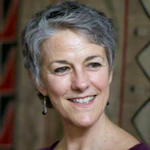 |
Christia MercerGustave M. Berne Professor of Philosophy, Columbia UniversityChristia Mercer is the Gustave M. Berne Professor of Philosophy at Columbia University, editor of Oxford Philosophical Concepts and co-editor of Oxford New Histories of Philosophy. Her recent work in the history of philosophy has been supported by support from the Guggenheim Foundation, American Academy in Rome, Folger Library, American Council of Learned Studies, Harvard University’s Villa I Tatti Library, Florence, Italy. |
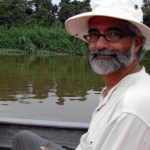 |
Shahid NaeemProfessor and Chair in the Dept. of Ecology, Evolution, and Environmental Biology and Director of the Earth Institute Center for Environmental SustainabilityShahid Naeem is Professor of Ecology in the Department of Ecology, Evolution, and Environmental Biology and Director of the Earth Institute Center for Environmental Sustainability at Columbia University. He obtained his PhD from the University of California at Berkeley, was a postdoctoral fellow at Imperial College of London, the University of Copenhagen, and University of Michigan. He has served on the faculty of the University of Minnesota, the University of Washington, and currently serves on the Faculty of Arts and Sciences and the Earth Institute at Columbia University. Recipient of the Ecological Society of America’s Buell and Mercer Awards and the Lenfest Distinguished Faculty award at Columbia University, he is also a fellow of the American Association for the Advancement of Science and an Aldo Leopold Leadership fellow. Considered among the “World’s Most Influential Scientific Minds” in environmental and ecological science by Thompson Reuters in 2016, his teaching, research, and publications focus on the importance of biodiversity in the functioning of ecosystems and the services they provide humanity. |
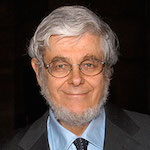 |
Robert PollackProfessor in the Department of Biological Sciences, Columbia UniversityRobert Pollack, Professor of Biological Sciences, joined the faculty of Columbia University in 1978. His research focuses on the potential utility of stable reversion from the oncogenic phenotype. His teaching focuses on the application of knowledge of the natural world to problems that require decisions that cannot be based solely on such data-driven knowledge. He was a Postdoctoral fellow in the laboratory of Dr. Howard Green at NYU Medical Center from 1966-1969; a research scientist at the Weizmann Institute of Science in 1969-70; a senior scientist at Cold Spring Harbor Laboratory from 1970 to 1975; and an associate professor of microbiology at the State University of New York at Stony Brook from 1975 until he joined the faculty of our Department as a Professor in 1978. Until 1991 his NIH-supported laboratory research focused on elaboration of his discovery in 1968 that the clonal descendants of tumor cells include genetically stable revertant cells, capable of growing into normal populations in turn. Beginning in the late 1990s, after he had set aside lab work in order to write a series of books, he has been pleased to note that other laboratories have begun to apply his discovery to the development of novel forms of cancer chemotherapy. As a result, his early research continues to be referenced in current research articles. |
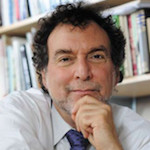 |
David RosnerRonald H. Lauterstein Professor of Sociomedical Sciences, Mailman School of Public HealthDavid Rosner, PhD, MPH, focuses on research at the intersection of public health and social history and the politics of occupational disease and industrial pollution. He has been actively involved in lawsuits on behalf of cities, states and communities around the nation who are trying to hold the lead industry accountable for past acts that have resulted in tremendous damage to America’s children. Cases aimed at removing lead from children’s environments and compensating parents and governmental agencies for the costs of care and abatement of hazards in the home environment have grown out of his academic work. His work on the history of industry understanding the harms done by their industrial toxins has been part of lawsuits on behalf of asbestos workers and silicosis victims as well. Prior to joining the Columbia faculty in 1998, Dr. Rosner was University Distinguished Professor of History at the City University of New York. In 2010, he was elected to the National Academy of Sciences’ National Academy of Medicine. In addition to numerous grants, he has been a Guggenheim Fellow, a recipient of a Robert Wood Johnson Investigator Award, a National Endowment for the Humanities Fellow and a Josiah Macy Fellow. He has been awarded the Distinguished Scholar’s Prize from the City University and the Viseltear Prize for Outstanding Work in the History of Public Health from the APHA, among others. Dr. Rosner has also been honored by the New York Committee on Occupational Safety and Health and, with Gerald Markowitz, was awarded the Upton Sinclair Memorial Lectureship “For Outstanding Occupational Health, Safety, and Environmental Journalism by the American Industrial Hygiene Association.” Dr. Rosner is an author of many books on occupational disease, epidemics, and public health. Lead Wars: The Politics of Science and the Fate of America’s Children, (University of California Press/Milbank Fund, 2013) details the recent conflicts at Johns Hopkins over studies of children placed in homes with low-level lead exposure and what it says about public health research. |
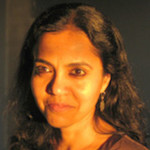 |
Kavita SivaramakrishnanAssociate Professor of Sociomedical Sciences, Mailman School of Public Health and Interim Co-Director, Robert N. Butler Columbia Aging CenterKavita Sivaramakrishnan is a public health historian with a focus on the history of medical global health concerns. Her most recent research is on the cultural politics of aging in south Asia. Prior to joining the Mailman School faculty as assistant professor of Sociomedical Sciences, Kavita was a David Bell Research Fellow at the Center for Population Studies and Development Studies at Harvard University and also was awarded the Balzan Fellowship for her work on social inequalities and health by University College London. Her training in history at Trinity College, Cambridge University and experience in archival work, policy debates and public health practice in developing settings brings together a rich interdisciplinary perspective anchored in rigorous historical method. |
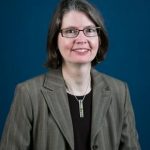 |
Sara TjossemSenior Lecturer in Discipline of International and Public AffairsSara Tjossem is a Senior Lecturer in the School of International and Public Affairs, Columbia University, and Associate Director of Curriculum for the MPA Program in Environmental Science and Policy. At Columbia she teaches environmental policy and the history of science. Her training in both the natural sciences and the history of science informs her research and teaching on environmental policy and politics. Her most recent book, Fostering Marine Science and Internationalism: The Journey with PICES, the North Pacific Marine Science Organization (Springer, 2017), describes the development and growth of a leading marine intergovernmental science organization. |
Steering Committee
@ 2018 The Center of Science and Society at Columbia University
| Contact Us | Non-Discrimination | ![]() |
|
